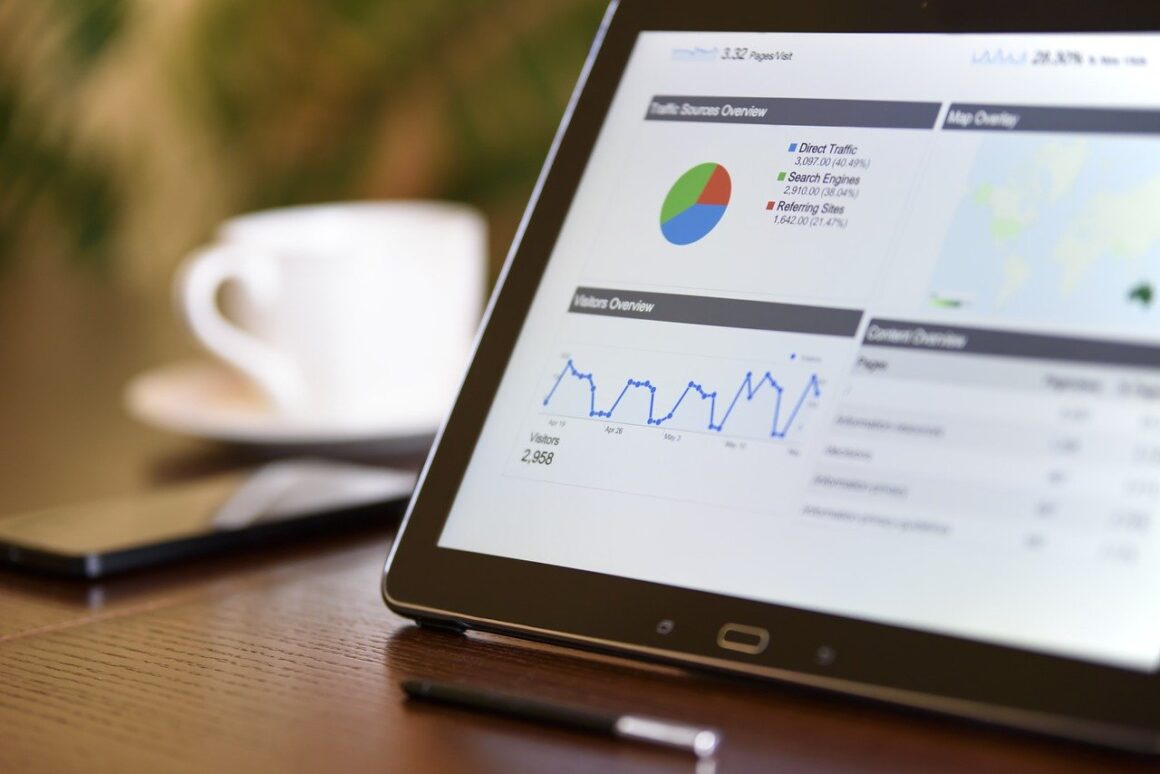DATA IS THE NEW GOLD
A new Paradigm shift has been witnessed in recent years where the only revenue a business generates is its development in technology and research. The amount of data collected by a company is viewed as a future asset utilised as the year progresses. But why have businesses started shifting towards heavy investment in collecting data? What will this data offer that has led to its comparison with gold? Is it just another marketing gimmick, or does data really hold enough significance to justify its worth as owing gold?
WHAT DOES DATA MEAN?
We perceive new information every day and store it in our brains, thus collecting data. Data is a set of qualitative and quantitative characteristics of an object or a fact. One can argue that it is numeric in nature, while others believe that data is theory. But in its most simple form, data means a set of information used for a specific purpose.

Data that can be stored and transmitted in a computer is commonly known as digital data. It is different pieces of information bonded together to give meaning. Since the mid 20th century, data has predominantly adopted the purpose of digital information. Therefore, it is facts, numerics and information stored and transmitted electronically.
BIG DATA: These are more extensive and complex data sets collected through varied sources that cannot be processed and understood using traditional processing software. They provide greater volume in terms of the amount of data collected, higher velocity at which data is received and wide variety and types of information. Big data is used to solve business problems that eliminate inefficiency. Big data is viewed as capital for a tech company. The data collected is used for better and swift decision making, increasing organisational and operational productivity and improvement in marketing and product development.
HOW DOES DATA COLLECTION BECOME OF VALUE?
Before interpreting the collected data, it is an abstraction, a metaphysical notion. When analysed, it serves as information. And the use of information provides a gateway of discussion and meaning, thus, bearing knowledge. Let us take the example of seas and oceans. The depth of a sea and its eco-system is raw data, a book containing information about water species is information and a step by step guide of how to scuba dive in the deep sea is information. Hence, data becomes valuable when it bears the knowledge that can be utilised for one’s use.
It is analogous to minting gold into coins, jewellery and ornaments to obtain its value. It is not the gold itself that creates value but the end result through its assembly and production. Therefore, the value of data collection lies in its utilisation. This utilisation of data drives profits for the business. The ‘new gold’ impacts its owner by analysing and manipulating the collected abstract sources.
Businesses have recognised the ‘data’ as a commodity. They ensure revenue generation through optimum data utilisation by processing and analysing it. The practice of data collection (collection of Big Data) is relatively new compared to buying gold, but the former is set to project better results in terms of financial growth. The companies that have cracked the code for collecting accurate data and streamlining it with its marketing, sales, operations and other business objectives are making billions in revenue. It has made them industry leaders and has abled them to cut short their competitors.
Facebook collects data through the use of cookies. If a person uses Facebook alongside other web browsers, Facebook can trail the websites and gather impressions. The pictures users share on Facebook are used for facial recognition and image processing. Therefore, Facebook can virtually track the users. The kind of posts a person likes on Facebook Is analysed and put into a pattern that can accurately predict and prioritise the post that Facebook will show to the user. Through the analysis of likes, Facebook can find out the religion, relationship, status, age, gender, race, and even the sexual orientation of a person.
One primary source of revenue for Google is its monetisation of the search engine. As the users browse the web, Google builds up revenue by advertising relevant products to the user. It accurately shows the concerned information through data collection and analysis of the user activities on the browser.
Uber uses the collected data for estimating fair prices. It uses traffic data, GPS data, maps, public transport roads and other factors for providing new services to its customers. Data Analytics and Big data collection is an integral part of the company’s structure.
Though it is beneficial for companies to collect, store and use user data for their business, do they care about all-time surveillance on their customers?
SURVEILLANCE CAPITALISM
Surveillance capitalism is a market practice where personal information is captured online and used for business purposes by the Tech Giants and the e-commerce industry. The commodity put on sale is our personal data in exchange for free online services such as free web browsers, social networking sites, online libraries, and related services. The collected data is analysed and put under scrutiny to produce information that can be Manipulated for commercial use. We, as customers, do not understand the level of surveillance that we are put under.
For example, when you use google’s search engine, it provides behavioural information that, when compiled and analysed with other data analytical software, help in the prediction of things you are more likely to spend money upon.
The tech giants such as Google, Facebook, Amazon have unparalleled data on their users. It has given rise to data privacy concerns among laymen. The data collected has most likely captured extreme personal information of its users, and the companies are already in the business of selling and generating revenue from it.
CONCLUSION
Data is a commodity, just like gold, bearing immense value to its owners. The “new gold” has already become the reason for a billion-dollar industry, and revenue trajectory is only rising. The world is leaning towards a data-driven marketplace where businesses are reaping the benefits of the data revolution. It has rationalised business management and makes a closer connection between customers and their preferences.
But will great power comes great responsibility, and the same is true for a data-driven economy. The collection of data has to be regulated legally to protect one’s privacy rights and save them from exploitation.
The quality of data generated is significant for it acts as capital or asset to a business. Just like how one cannot produce heavy gold ornaments from lower grade material, if the quality of data collected is compromised, the insights delivered by analysing it will bear zero value.
Is data the new gold? Yes, if you’re able to procure value insights from it and use them for driving profits.

 Add to favorites
Add to favorites









